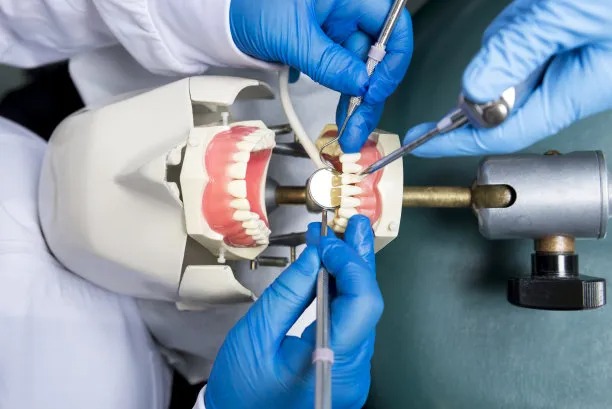Essential Precautions and Guidelines to Follow Before Undergoing Root Canal Treatment for Optimal Dental Health
Summary: Root canal treatment is a crucial procedure for restoring dental health, yet patients must be well-prepared to achieve optimal outcomes. This article outlines essential precautions and guidelines prior to undergoing root canal treatment. Firstly, understanding the importance of thorough dental evaluations can lead to informed decision-making. Secondly, managing anxiety through effective coping mechanisms can enhance the overall experience. Thirdly, discussing medication and health history with the dentist is critical for safety. Finally, ensuring oral hygiene before the procedure can significantly contribute to its success. By following these guidelines, patients can greatly improve their chances of a successful root canal treatment.
1. Importance of a Comprehensive Dental Evaluation

A comprehensive dental evaluation is the cornerstone of any successful dental procedure, especially root canal treatment. Before undergoing such a procedure, it is imperative that patients undergo a thorough examination by their dentist. This evaluation usually includes X-rays and might involve additional diagnostic tools that help assess the extent of decay or infection.
Understanding the specific condition of the tooth in question allows for a tailored treatment plan. Each tooth is different and may require varying approaches depending on the level of damage or infection present. Therefore, a detailed assessment not only aids in diagnosis but also guides the dentist in selecting the best treatment methods.
Patients should also discuss their dental history, which can provide crucial insights into their current dental health. Any prior treatments, ongoing conditions, or allergies to anesthesia or antibiotics should be disclosed to ensure a safer procedure.
2. Strategies for Managing Anxiety and Stress
Many patients experience dental anxiety, particularly when considering treatments like root canals that are often associated with pain. It is essential to address these fears to ensure a smoother procedure and recovery. One effective strategy is to have an open conversation with the dentist about any concerns. Understanding the steps involved in the treatment can sometimes alleviate fears.
Relaxation techniques such as deep breathing exercises or visualization can also be beneficial before and during the procedure. Many dental offices offer calming environments, and patients may benefit from listening to soothing music or bringing a comfort item to the appointment.
Moreover, discussing sedation options with the dentist can be a useful way to manage anxiety. Sedation can help patients feel more relaxed and less aware of the procedure, making the experience far more pleasant.
3. Communicating Medication and Health History
Effectively communicating any medications or health conditions to your dentist is a vital precaution before root canal treatment. Certain medications can influence the procedure and its outcomes, so it’s crucial to provide a complete list of all prescription and over-the-counter drugs you are currently taking.
Additionally, discussing any underlying health conditions such as diabetes, heart disease, or blood clotting disorders can significantly affect the approach a dentist takes toward treatment. These conditions might require special considerations regarding healing times, medication prescriptions, and anesthesia plans.
Being forthright about medication, allergies, and health conditions will help the dental professional tailor the treatment for both safety and effectiveness, ultimately leading to a better overall experience.
4. Maintaining Oral Hygiene Before the Visit
Good oral hygiene before undergoing root canal treatment is crucial for the success of the procedure. Patients should focus on maintaining their dental care routine, including brushing twice a day and flossing to minimize the risk of additional infections.
Additionally, avoiding stimulants like tobacco and sugary foods leading up to the appointment can contribute to better dental health. Such substances can exacerbate inflammation and complicate the healing process.
It may also be beneficial to use an antibacterial mouthwash to reduce the bacterial load in the mouth. This practice can enhance the chances of a successful procedure and quicker recovery by lowering the risk of post-treatment infections.
Summary:
In conclusion, preparing for root canal treatment goes beyond just showing up on the treatment day. A comprehensive dental evaluation, anxiety management strategies, effective communication regarding health history, and maintaining good oral hygiene are all integral to achieving optimal dental health.
By following these essential precautions and guidelines, patients can enhance their treatment experience and improve their dental outcomes.
This article is compiled by Vickong Dental and the content is for reference only



